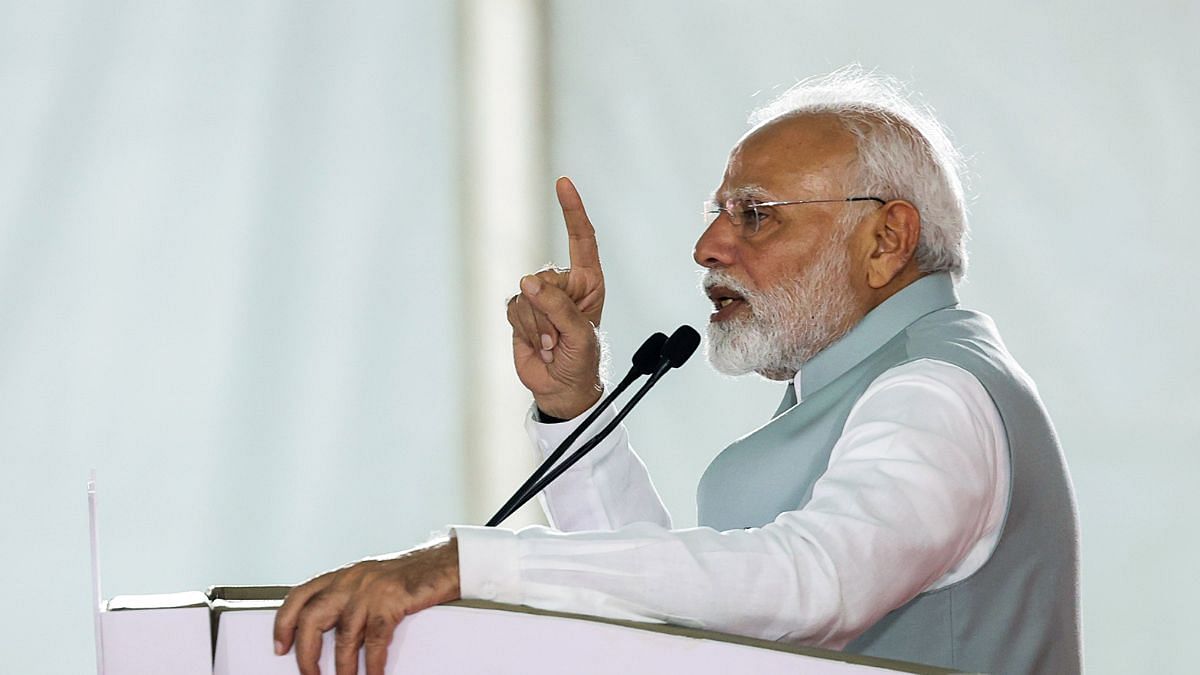 |
|
Prime Minister Narendra Modi's recent inauguration of various railway projects across India signifies a significant step towards enhancing the nation's connectivity and bolstering socio-economic progress. The projects, spanning Jammu and Kashmir, Telangana, and Odisha, underscore the government's ambitious vision for modernizing and expanding the country's railway infrastructure. This initiative aligns with the government's four-pronged strategy encompassing infrastructure modernization, improved passenger amenities, expansion of railway connectivity, and leveraging railways to stimulate job creation and industrial growth. The emphasis on these four key areas reflects a comprehensive approach to addressing the multifaceted challenges and opportunities presented by the Indian railway system. The successful implementation of these projects will not only improve transportation efficiency and accessibility but also contribute significantly to the overall economic development of the country.
The inauguration of the new Jammu Railway Division stands out as a particularly noteworthy achievement. Encompassing a vast network of 742.1 km, including sections like Pathankot-Jammu-Udhampur-Srinagar-Baramulla, Bhogpur Sirwal-Pathankot, Batala-Pathankot, and Pathankot to Joginder Nagar, this division is poised to transform connectivity in Jammu and Kashmir and its surrounding regions. The improved connectivity will undoubtedly stimulate tourism, create numerous employment opportunities, and accelerate infrastructure development in the region. The project highlights the government's commitment to bridging the infrastructural gap and fostering economic growth in previously underserved areas. The positive impact on the lives of the people in this region will likely be substantial, improving their access to essential services, educational opportunities, and market opportunities.
Beyond the immediate impact on Jammu and Kashmir, the broader implications of PM Modi's railway initiatives are significant. The ongoing progress towards 100% electrification of railway lines is a testament to the government's dedication to sustainable and environmentally friendly transportation solutions. This transition to electric traction will not only reduce carbon emissions but also improve operational efficiency and reduce reliance on fossil fuels. Furthermore, the expansion of the metro rail network, exceeding 1000 kilometers since the beginning of 2025, reflects a commitment to providing efficient and affordable public transportation in urban centers. These infrastructure improvements are not just about connecting cities; they're about building a more sustainable, accessible, and economically vibrant India. The completion of projects like the Chenab Bridge, the world’s highest railway arch bridge, symbolizes the scale of ambition and engineering prowess driving these transformative initiatives.
The overall impact of these railway projects extends far beyond the immediate economic benefits. They contribute to national unity and integration by connecting geographically diverse regions. Improved connectivity fosters social cohesion, facilitates cultural exchange, and enhances access to healthcare and education for people in remote areas. The creation of employment opportunities through these projects directly addresses the challenge of unemployment and contributes to overall economic prosperity. The government's focus on leveraging railways for job creation and industrial support underscores its holistic approach to development, recognizing the interconnectedness of infrastructure development, employment generation, and economic growth. These initiatives represent a strategic investment in the future of India, promising a brighter and more connected future for its citizens.
